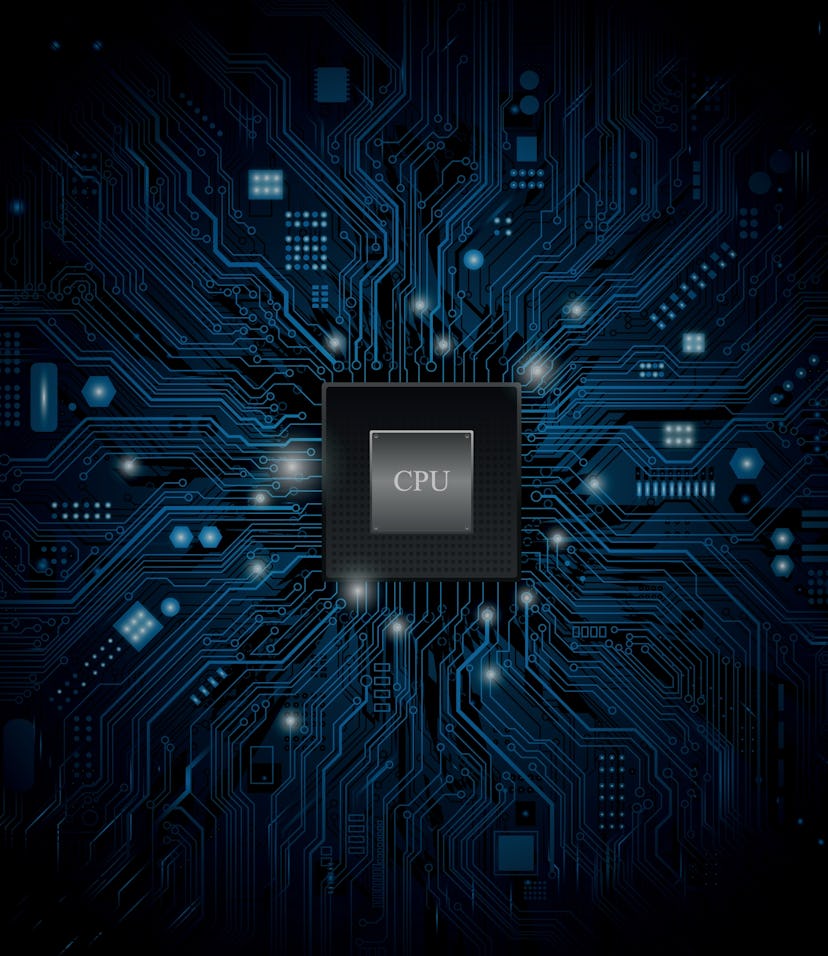Tech
IBM's new quantum processor is way smarter than your MacBook

127
Max qubit load of IBM's new Eagle processor.
IBM’s latest quantum computing experiments have created a processor capable of solving problems regular-old computers can’t even dream of parsing out. The company’s new Eagle processor, which it revealed on Axios’ HBO show, can handle loads of up to 127 qubits (quantum bits). IBM CEO Arvind Krishna says the processor could theoretically solve more problems in the next four years than we have in the last four decades.
Quantum computing as a study has been around since the ‘80s, but creating a processor powerful enough to actually outmatch a classical computer has pretty much been a pipe dream until now. Both Google and IBM have created impressive quantum processor prototypes in the last decade, though no previous experiments surpassed 100 qubits. IBM’s Eagle processor isn’t powerful in the same way as, say, Apple’s M1 chips, Krishna explains, but it can solve problems regular processors can’t compute in a feasible amount of time.
“I don’t view quantum computers as trying to replace classical computers at all,” Krishna says. “We are trying to solve the problems classical computers cannot solve.”
A quantum breakthrough — Quantum computing is nothing like classical computing — and that’s its biggest strength. The tenets of quantum computing are quite complex, to say the least. At the field’s core are quantum mechanics. Rather than using trillions of 1s and 0s to complete various functions, quantum processors use qubits: subatomic particles that can, believe it or not, represent both 1 and 0 at the same time. And then those qubits can also be paired together, increasing their possible combined states exponentially.
This mind-boggling research doesn’t aim to make faster processors for our home computers. In many cases, replacing a classical processor with a quantum one would actually slow things down. Instead, a powerful quantum processor could be used to crack complex problems that would take a classical processor far too long to compute. This idea, called “quantum supremacy,” could unlock solutions in fields like chemistry, cryptography, and even climate change.
But it’s not quite ready yet — IBM’s 127-qubit processor is a leap forward for the field of quantum computing. The Eagle isn’t quite ready for the big time yet, though. Despite decades of research, quantum computing is still on shaky ground. It’s very, very expensive to build quantum processors, for one thing, and using them requires specialized knowledge.
Quantum computing also presents an interesting conundrum for the internet on a larger scale. Quantum processors are very good at solving cryptography — so good, in fact, that one could theoretically solve all digital encryption in no time at all... which would break every mechanism that keeps our data safe on computers and the internet.
Krishna is visibly excited in announcing the Eagle’s success to Axios. IBM still faces a steep road to wider quantum processing adoption, though. The company will need to convince investors such esoteric technology is worth pursuing well into the next decade, too.